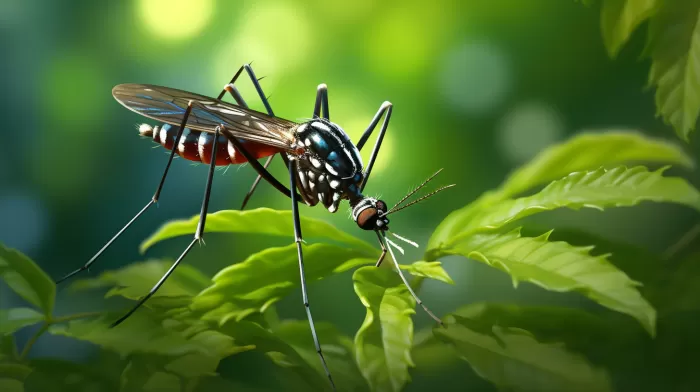Globalization impacts various aspects of our lives, including the spread of diseases. With the ability to travel from continent to continent with ease, certain illnesses can now move from one region to another much faster than ever before. This summer, we may see the effects of this in the form of a new virus expected to cause pain in the United States.
Chikungunya, a virus known for causing severe joint pain and fever, has researchers at Cornell University on high alert. They predict outbreaks of the virus might occur in New York City, Atlanta, and Miami due to the invasive Asian tiger mosquito, known for its role in spreading the disease.
In this article, we’ll discuss the timeline for such outbreaks, the link between the virus and the mosquito, what to expect if you’re exposed to Chikungunya, and how to protect yourself and your loved ones.
Chikungunya: A Timeline for U.S. Outbreaks
According to Cornell researchers, Chikungunya outbreaks could occur at different times in the three cities at risk. They predict New York City to be at risk in August and September, while Atlanta could see outbreaks from June to September. Miami, on the other hand, is at year-round risk due to its warm climate.
The probability of an outbreak is heavily influenced by temperature, as warmer weather provides the perfect breeding ground for the Asian tiger mosquito to multiply.
These predictions are based on computer models, which indicate that there is a high probability of a Chikungunya outbreak if a single infected person arrives in New York, Atlanta, or Miami and is bitten by an Asian tiger mosquito. The risks, however, depend on the specific timeframes for each city.
Chikungunya and the Asian Tiger Mosquito Connection
The Chikungunya virus is primarily transmitted through the bite of an infected Asian tiger mosquito. These mosquitoes can quickly spread the virus after biting an infected person, making them the primary catalyst for outbreaks.
Asian tiger mosquitoes, also known as Aedes albopictus, are invasive species that have made their way to the U.S. from Southeast Asia. They thrive in warm climates and urban environments, which make cities like Miami, Atlanta, and New York prime locations for potential outbreaks.
What Happens If You Get Chikungunya?
Chikungunya is not usually considered a fatal disease, but it can cause significant discomfort and pain. The symptoms generally appear between three and seven days after being bitten by an infected mosquito.
The most common symptoms include:
- Fever
- Severe joint pain
- Achiness
- Headache
- Nausea
- Fatigue
These symptoms may also be accompanied by debilitating and prolonged pain in the small joints of the hands and feet. Although the virus originated in Central Africa, it is now endemic in Southeast Asia.
Protecting Yourself from Chikungunya
Avoiding exposure to the Asian tiger mosquito is the most effective way to protect yourself from the Chikungunya virus. Here are some steps you can take to minimize your risk:
- Use insect repellent: Apply a mosquito repellent with DEET, picaridin, IR3535, or oil of lemon eucalyptus on exposed skin.
- Wear protective clothing: Dress in long sleeves, pants, and socks when outdoors, especially during peak mosquito activity in the early morning and evening.
- Keep mosquitoes outside: Use air conditioning, window screens, and mosquito nets to prevent mosquitoes from entering your home.
- Remove standing water: Empty any containers with standing water near your home (e.g. flowerpots, buckets, old tires) to prevent mosquito breeding sites.
Being informed and prepared for the potential Chikungunya outbreaks is the first step to keeping yourself and your community safe. By understanding the risks and knowing how to protect yourself, you can help reduce the spread of this painful virus.
Keep a close eye on local news and updates from health organizations like the Centers for Disease Control and Prevention (CDC) to stay informed on Chikungunya outbreaks and other health concerns in your area.
Stay vigilant, and take action to protect yourself and your loved ones from the impact of Chikungunya this summer.



